In this post, we share our total expenses as we traveled around America’s Great Loop in one year. This 6,000 nautical mile journey around part of both the US and Canada by boat is typically completed by people who are retired after working and saving money throughout their lives. By sharing our Great Loop costs, we hope to inspire other young couples, families, and individuals to do the Great Loop sooner rather than later.
Note: We use affiliate links which provide us a little kickback each time you use one of our links and make a purchase, without any additional cost to you. We do not recommend products that we don’t already love or have heard great things about, so you can trust we’re only suggesting great products to you.
During our first loop attempt in 2021, we received a lot of questions about how we’re doing the loop at a young age (the answer to that question is that we’re both working full-time) but I think the more relevant question was how are we doing the loop in an economical way? This sparked our idea to share our monthly great loop expenses on our website for anyone to read. We want to be clear that the Great Loop can be done for less money than we spent and can also be much more expensive than what we spent this past year. This Great Loop Expense Report is shared as a reference for prospective loopers who are interested in planning for their trip of a lifetime on the Great Loop. We hope you find this Great Loop costs information both valuable and helpful.
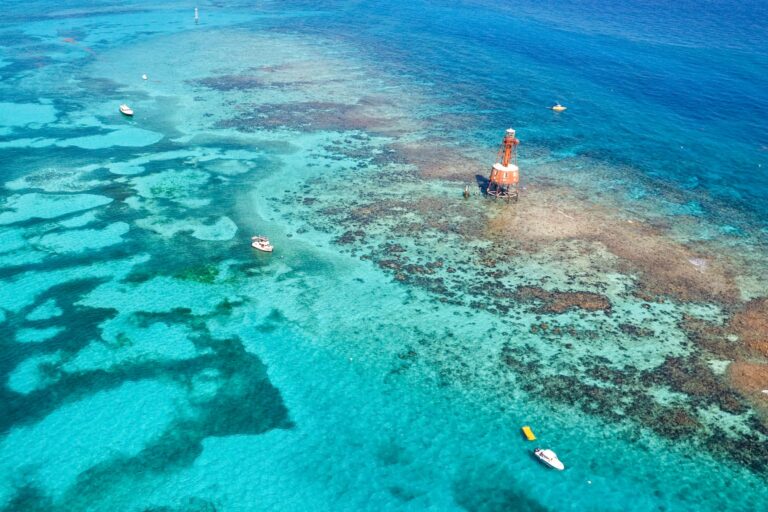
Not All Great Loop Budgets Are The Same
Completing the Great Loop is a completely unique experience as it varies from person to person. The Great Loop is full of a variety of people with varying-sized boats, budgets, and lifestyles. This is by no means the only way to do the loop, but it’s how we did our loop. Just as the Great Loop experience is completely customizable, so is each person or couple’s budget. We chose to anchor more than we visit marinas because it maximizes our largest controllable budget category.
Our time at marinas is typically very focused on getting convenient boat tasks done like washing the boat, filling up our water tanks, grocery shopping, boat work, etc. We found that spending the money to have a reliable and trustworthy anchor setup and dinghy was valuable to our overall budget because it helps us limit our time at marinas which can add up quickly. You can read more about our boat and our ground tackle (aka anchoring gear) here. Elliot also wrote an E-book explaining the electrical system changes we made to make our boat capable of being off the grid for extended periods of time.
“The secret to budgeting is that it needs to be honest. Not what you think it should be or wish it could be, but what it really is.”
― Lisa Conway-Hughes
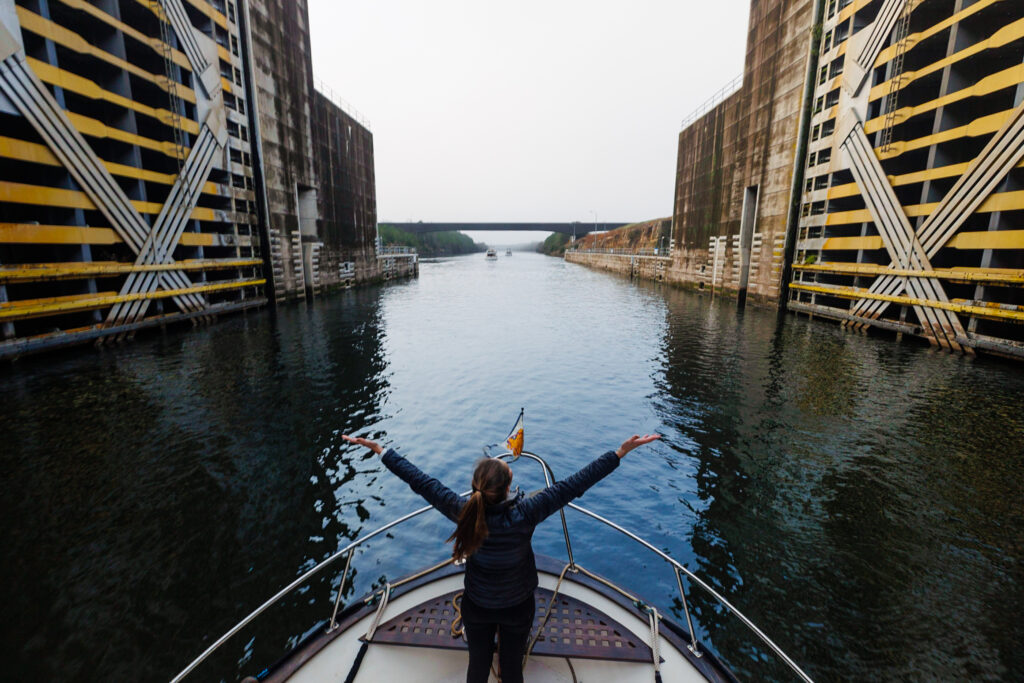
What Kind of Expenses are on the Great Loop?
Traveling on the Great Loop has many of the same expenses as on land, however, there are a few specific to cruising full-time. We divided up our Great Loop costs into a few categories, including marina, fuel, groceries, housekeeping, restaurants, attraction/tours, insurance, and other. Here are how we made these categories and what is included in each of them:
Marinas
This category is for overnight dockage or mooring. This could be at a marina, a paid dock, or any paid overnight stays. Throughout our journey on the Great Loop, we saw marinas range from $0.50-6/foot depending upon your location. The northeast, specifically New York City had the most expensive marina, Liberty Landing Marina at $6/foot whereas some of the least expensive marinas were on the midwest rivers at $1/foot. When available, we try to get a mooring ball as they are a fixed price and provide many of the same amenities as a marina, just without the convenience of a dock. Since you’re paying for the marina, a mooring ball typically comes with the marina amenities including showers and laundry.
Fuel
This category of the Great Loop costs is just diesel fuel. Our engine and generator take diesel so we have two large diesel tanks that hold about 300 gallons total. When our tanks are getting low, we begin to shop around for diesel before making a large fill-up. We made a video on Tips for Saving Diesel on an Old Trawler which includes searching for the best diesel prices on Waterway Guide and Cruisers Net. When researching fuel prices, be sure to look at whether tax is included or not. That can affect your overall fuel prices when filling up hundreds of gallons. By doing our homework and searching around ahead of time, we can avoid high fuel prices and can rest assured that we’re getting the best price available.
Groceries
This category includes groceries, pantry items, large provisioning hauls from Walmart or Amazon, and alcohol. While we lived on land, we would shop around at various grocery stores for deals. Now that we live on a boat, we’re at the mercy of whatever is most convenient to our boat and shopping at whatever grocery store is available. In some cities or towns, there might only be one grocery store in town, while other locations might have several options available. When available to us, we prefer to buy organic, however, that wasn’t always an option.
Housekeeping
This Great Loop costs category includes things like laundry, propane refills, pump outs, water refills, and tipping dock hands. We primarily wash our clothes in marina laundry facilities. Each load can cost between $1-4 per load, with the average load costing $2 for a total of $4 to wash and dry one load of laundry. Our galley uses two primary fuel sources for cooking: electricity and propane. We have two propane tanks on our boat for our stove top and grill cooking. Fill-ups usually cost around $5-10 per tank.
Pump-outs can range from free to $10, however, we usually see pump-outs costing $5. In Canada, pump-outs cost us $15/tank. Usually, water is free with a diesel fill-up or overnight dock stay. While we cruised in the Florida Keys, we paid for water which cost us about $0.10/gallon. Each time we visit a dock, there are usually people there to help catch lines and assist us when docking. We tip $5/person.
Restaurants
Part of the fun of traveling is tasting the delicious food that’s popular in a specific region. This category includes everything from bars, restaurants, desserts, breweries, coffee shops, etc. Anytime we ate out whether it was taken out or dining in, it went in this Great Loop costs category.
Attractions/Tours
The other part of traveling is seeing various sights and taking tours to learn more about a place. This category will vary significantly from place to place but is something we valued to make the most of our Great Loop experience.
Insurance
Part of owning a boat includes boat insurance. It’s just part of doing business.
Boat Projects
This category is for all hardware, maintenance items, or engine pieces that are completed on the loop. This can range from boat improvements to maintenance items like an oil change. Basically, anything that’s related to our boat goes here.
Other
This category is for any miscellaneous items that don’t fit into the previously mentioned Great Loop costs categories.
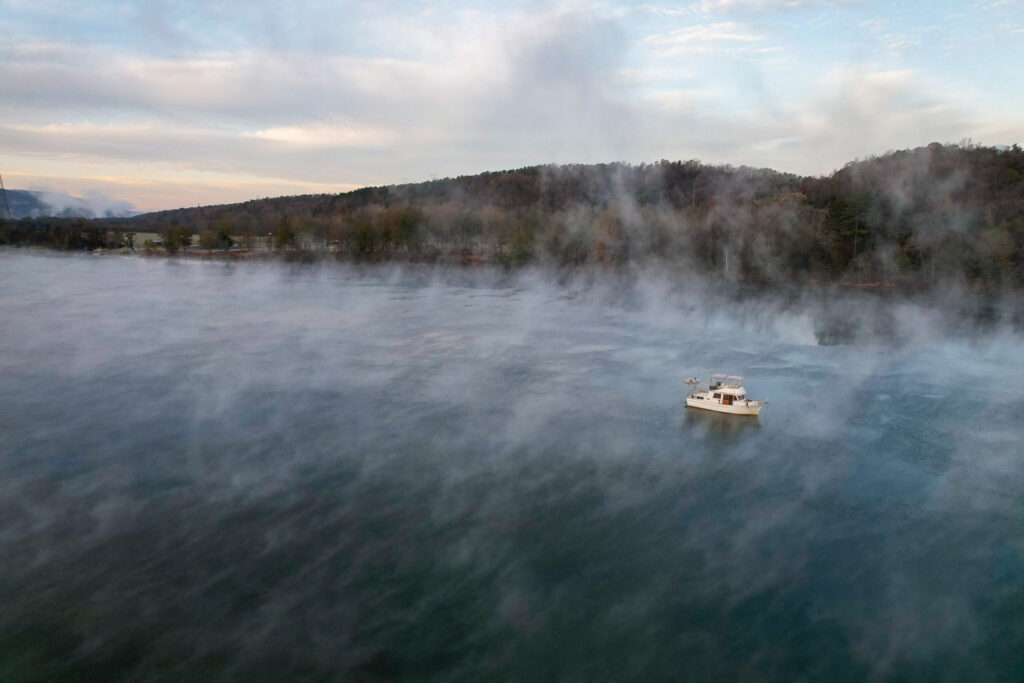
Annual Boating Expenses
These are the boat expenses that we pay for on an annual basis that didn’t make it into our 12 month of expenses for one reason or another:
- US Coast Guard Vessel Renewal $26.00
- AquaMaps US and Canada Maps $29.99
- Boat US Annual Gold Unlimited Towing $169.00
- Nebo Link $149
- Nebo Monthly Subscription $12/month
- America’s Great Loop Cruisers Association yearly Membership $79/year plus a one-time joining fee of $15
- Starlink Internet $150/month plus $697.68 ($599 plus taxes and fees) one-time fee for hardware
*costs at the time of writing this article*
This totals $3,109.67 of expenses which were not all included in our Great Loop Expense total. We didn’t include some of these items like Starlink internet because they’re business expenses, but since we received so many questions about it, we thought it was important to share.
The Travel Summary
America’s Great Loop is a 6,000-mile journey around the United States and Canada by boat. It’s typically done in one year, however, it can be extended into multiple years where boaters enjoy a slower pace to enjoy each region deeper. The Great Loop has a ‘standard route’, but also has many options when planning your trip, primarily in the Great Lakes region.
The trip also can include a few side trips including the St. John’s River in northeast Florida, the Potomac River to D.C., the Rideau Canal to Ottowa, Ontario, the Cumberland River to Nashville, Tennessee, the Tennessee River to Chattanooga, Tennessee, and lastly the Florida Keys. Each Great Loop is different and ours was not an exception, so it’s important to understand where we traveled, how far we cruised, and some specifics in our particular loop experience when thinking about our Great Loop costs.
We began our Great Loop in Key West, Florida, traveled a total of 5,861 nautical miles, and crossed our wake in Stuart, Florida. During our Great Loop, we choose to cruise through Canada, took the side trip to Nashville, and Chattanooga, and took the Big Bend – hugging the Florida coastline instead of doing the overnight Gulf Crossing. Here’s our Nebo travel summary:
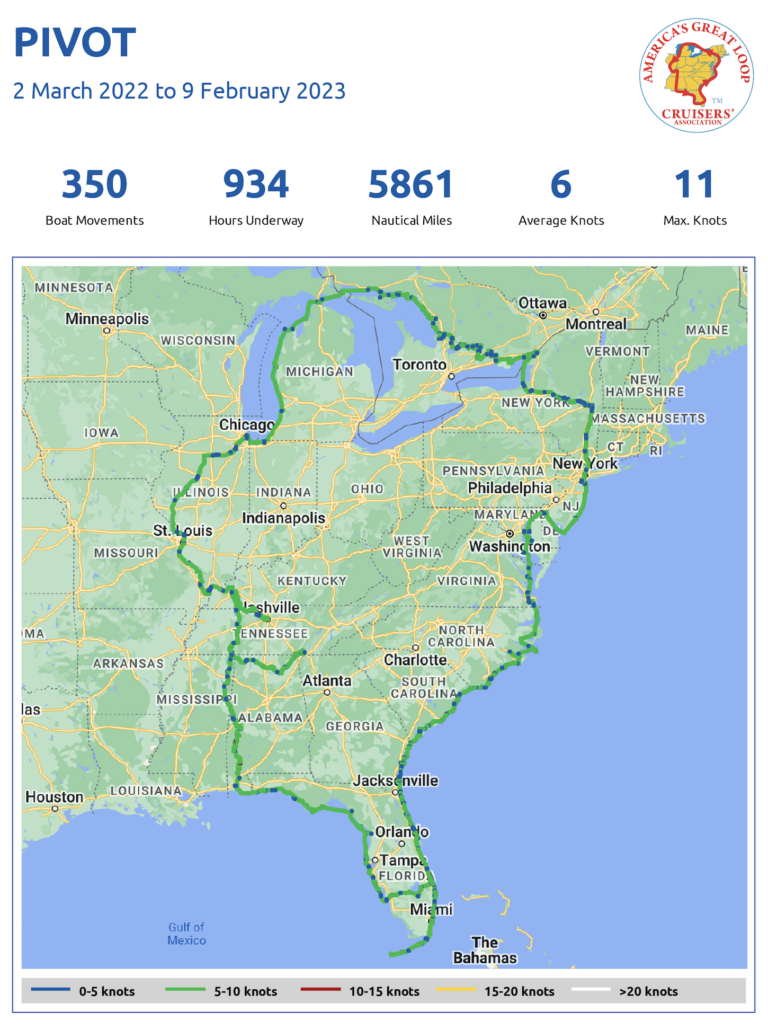
NIGHTS SPENT
Marina dock: 98
Marina mooring ball: 18
Free dock: 61
Paid dock: 12
Free lock wall: 7
Paid lock wall: 8
On Anchor: 161
Anchoring has been key to our Great Loop budget. Prior to starting our Great Loop, we created our budget for the trip. There are a few “given expenses” on the Great Loop including fuel, boat maintenance, and boat insurance, but there are a few expenses that are much easier to control. Our Great Loop costs budget required us to stay on anchor more than we spent time at marinas. Spending time at marinas is a reoccurring high expense for loopers, but by anchoring out significantly helps control this expense category. We spent 63% of our nights free of charge – either on anchor, at free docks, or free mooring balls. Anchoring is by far our easiest way to save money on the loop!
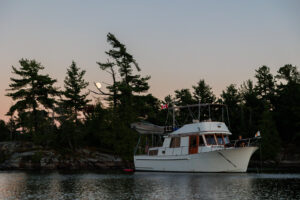
Check out our anchoring course! We share all our tips and tricks for anchoring with confidence. Use the code “budget” for 10% off the course.
The type of boat you choose to complete your Great Loop with has a huge effect on your budget. The length of your boat will affect your marina budget as marinas charge by the vessel’s length. So a smaller 27 Ranger Tug will have a significantly cheaper marina budget than a 45 Carver or a 55 Fleming. We were in the smaller range of boat sizes with a 34-foot boat since the average looper boat is about 40.5 feet long.
The next boat characteristic that will determine your budget is the number of engines you have (one or two) and how fast you run your engines. Looper boats are typically categorized into two categories: “go fast boats” and “slow boats.” If someone is hoping to save money on their loop, then reducing their cruising speed from 10 knots to 8 knots or from 8 knots to 6 knots can drastically reduce the amount of fuel they consume. Fuel consumption on a boat is exponentially calculated from how high the RPM of the engines run.
We bought an old trawler, with a reliable diesel engine that had low engine hours on it. Our boat was a “slow boat” that sips diesel and was on the smaller scale of looper boats, which allowed us to tuck into spaces that larger boats would not fit into. Having a smaller, fuel efficient boat was a great way for us to keep our expenses lower.
OUR TOTAL MILES TRAVELED: 5,861 nautical miles (6,745 statute miles)
TOTAL TIME TRAVELED: 934 hours
TOTAL DIESEL FUEL BURNED: 2035 gallons (7703.313 liters)
AVERAGE FUEL BURN: 2.18 gallons/hour
TOTAL OIL CHANGES: 4
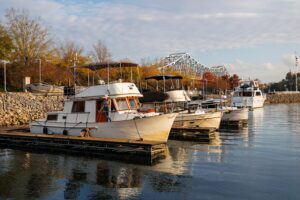
Check out our post 15 Tips for Boating on a Budget!
Monthly Expense Breakdown
We recorded our monthly expenses on the Great Loop. To see the information broken down further, click on the month below:
- March 2022 Great Loop Expenses
- April 2022 Great Loop Expenses
- May 2022 Great Loop Expenses
- June 2022 Great Loop Expenses
- July 2022 Great Loop Expenses
- August 2022 Great Loop Expenses
- September 2022 Great Loop Expenses
- October 2022 Great Loop Expenses
- November 2022 Great Loop Expenses
- December 2022 Great Loop Expenses
- January 2023 Great Loop Expenses
- February 2023 Great Loop Expenses
Our Great Loop Total Expenses
From March 2022 to February 2023, we spent a grand total of…
$40,501.79
GRAND TOTAL OF GREAT LOOP EXPENSES
This list does not include personal expenses like healthcare, phone bills, subscriptions, and business expenses, as those all vary from one person to another. All expenses are in USD.
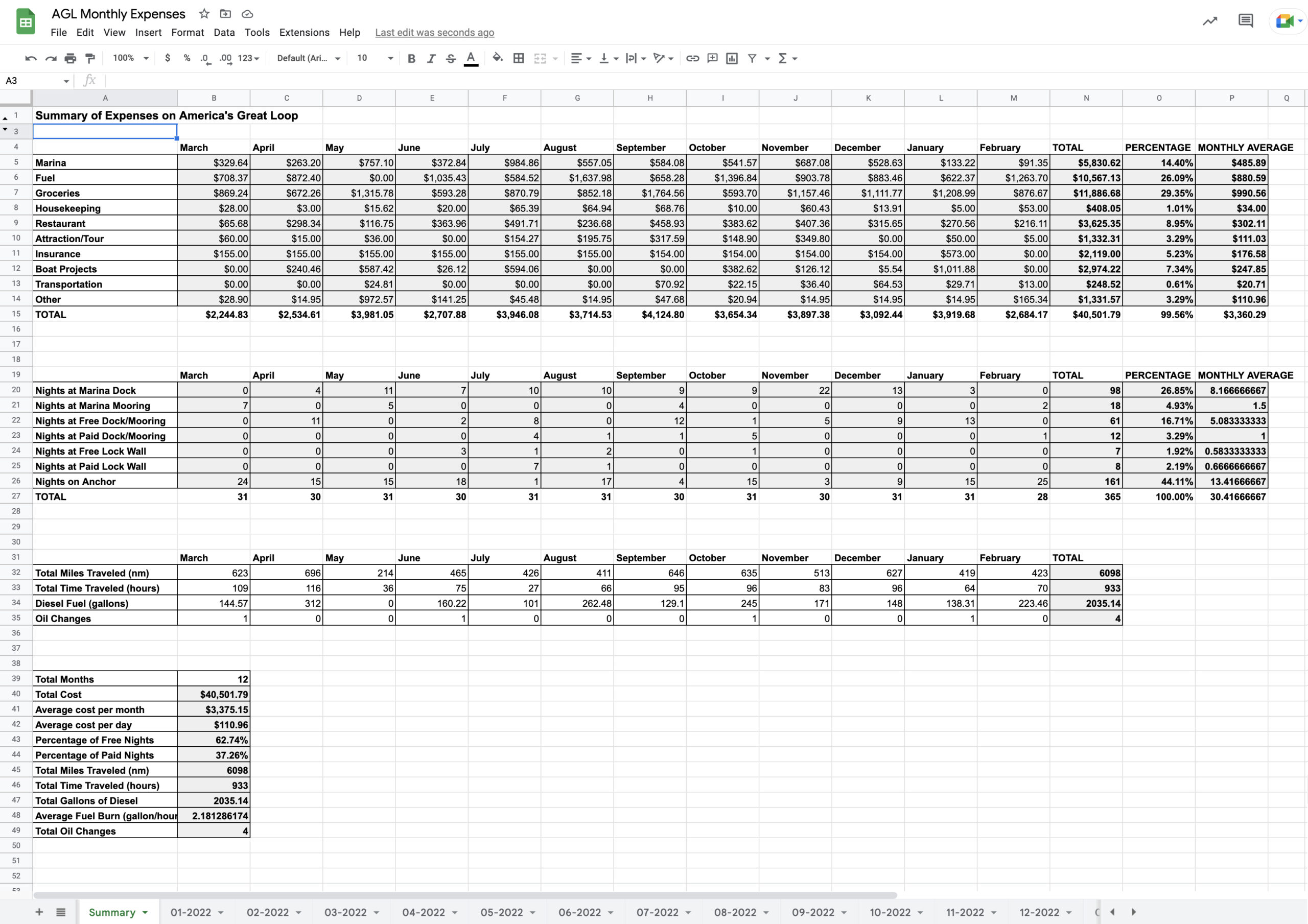
Our largest expense of the Great Loop costs was groceries for a total of $11,886.68. Most of the meals we eat are cooked on our boat, making this a reoccurring high category for us.
Our second greatest expense was fuel for a total of $10,567.13. We fueled up on average once a month which ranged from about $600-900 a month. It depended upon the region we were in and the average fuel prices when we were filling up.
Our third greatest expense was marinas, which cost a total of $5,830.62.
Our expenses based on category ranging from most to least expensive and their percentage of our total expenses:
Groceries $11,886.68 (29.35%)
Fuel $10,567.13 (26.09%)
Marinas $5,830.62 (14.04%)
Restaurants $3,625.35 (8.95%)
Boat Projects $2,974.22 (7.34%)
Boat Insurance $2,119.00 (5.23%)
Attractions/Tours $1,332.31 (3.29%)
Other $1,331.57 (3.29%)
Housekeeping $408.05 (1.01%)
Transportation $248.52 (0.61%)
Great Loop Budgeting Resources
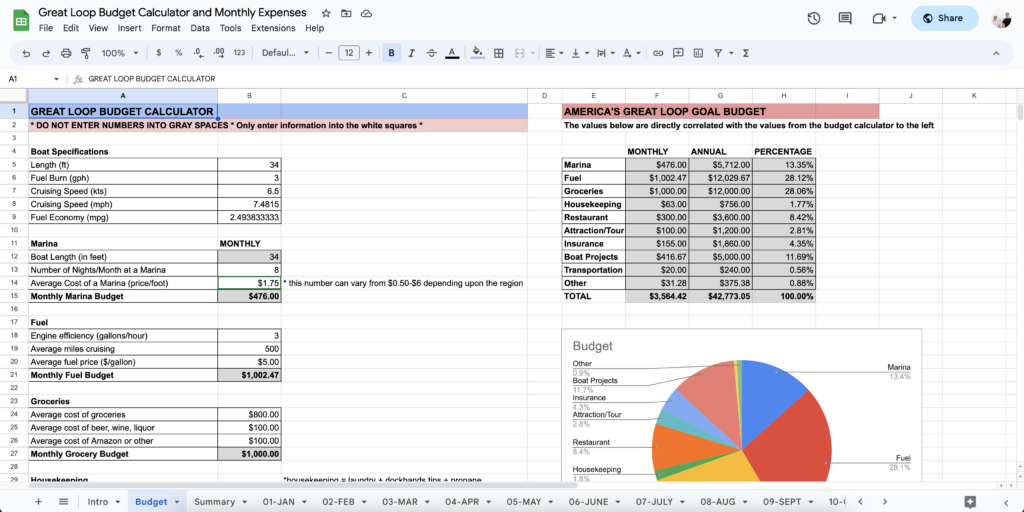
Check out our Great Loop Budget Calculator & Expense Log to help you budget for your Great Loop!
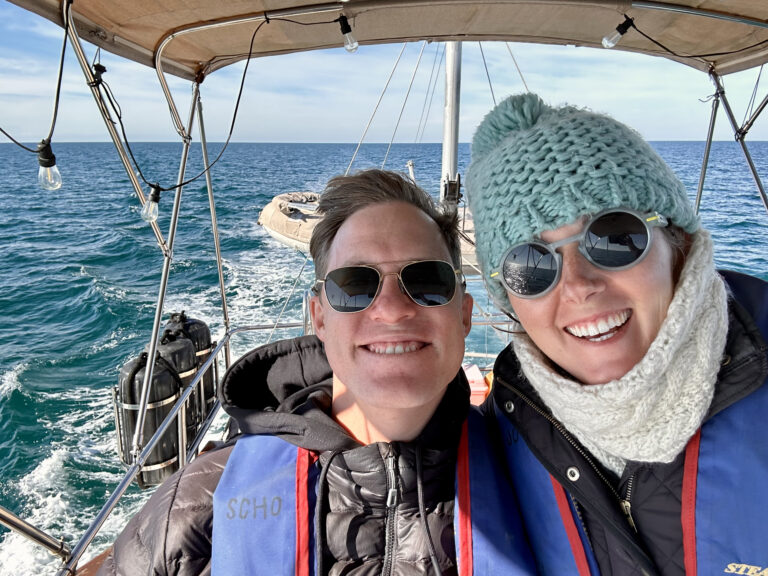
We hope this Great Loop costs post provided you with some insightful information on how much it costs to do the loop on a budget. Share this post with a friend if you think someone else might find this information useful. If there is something you would like us to include in our final Great Loop Total Expenses, then let us know in the comments below!
Watch the budget breakdown on YouTube
The ups, downs, and everything in between, we share it all. If you like what you see, then there are lots of ways to show your support and say thanks!
Save for Later
Save this to Pinterest to read again later!
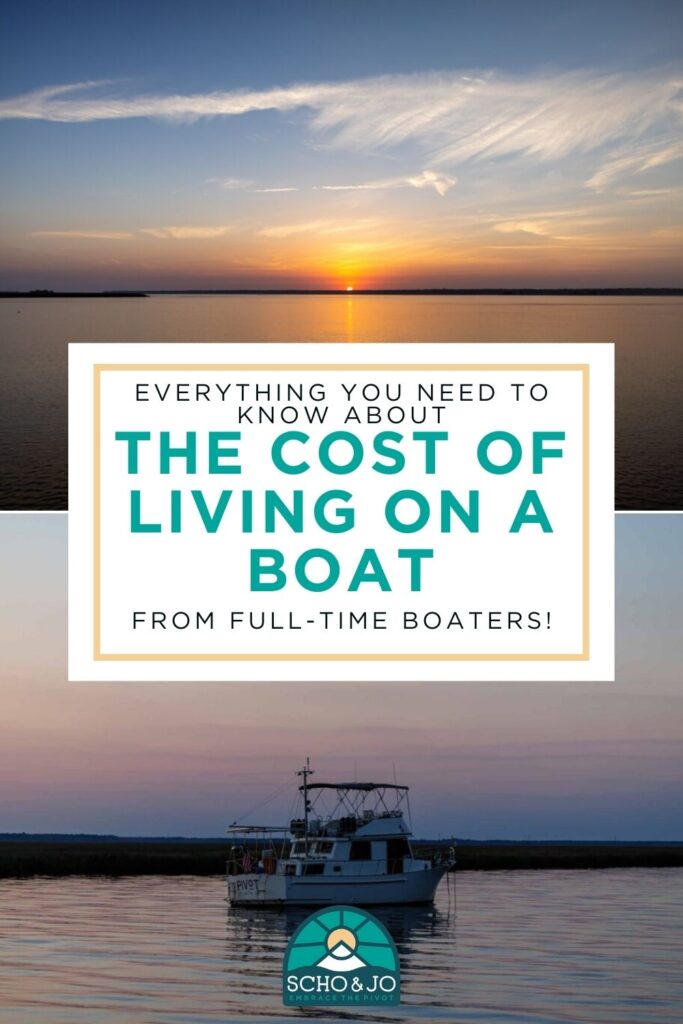
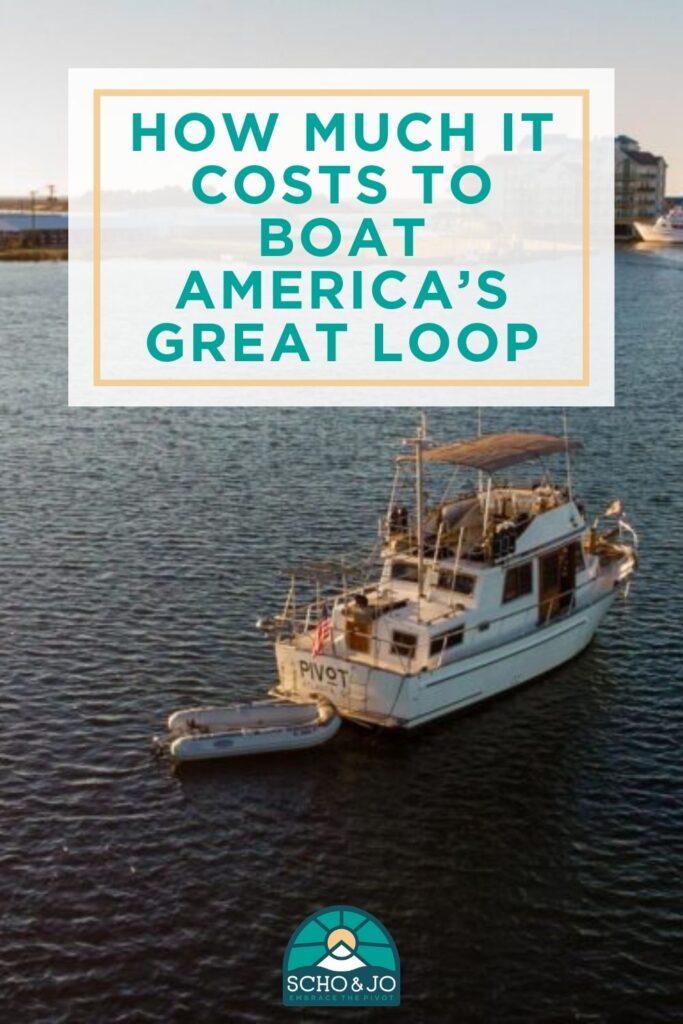
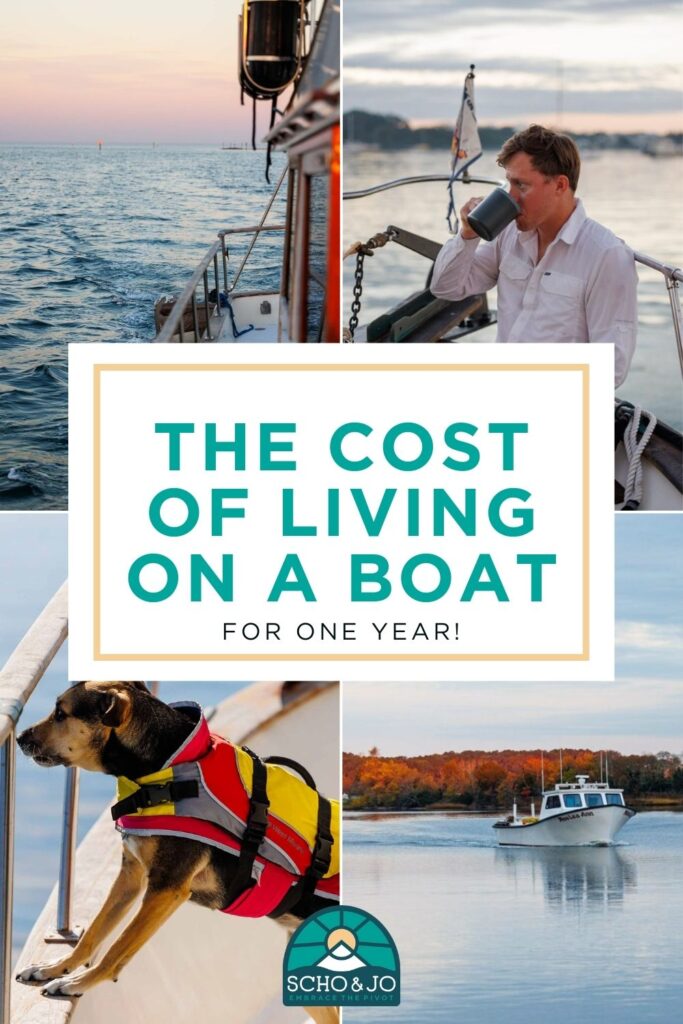
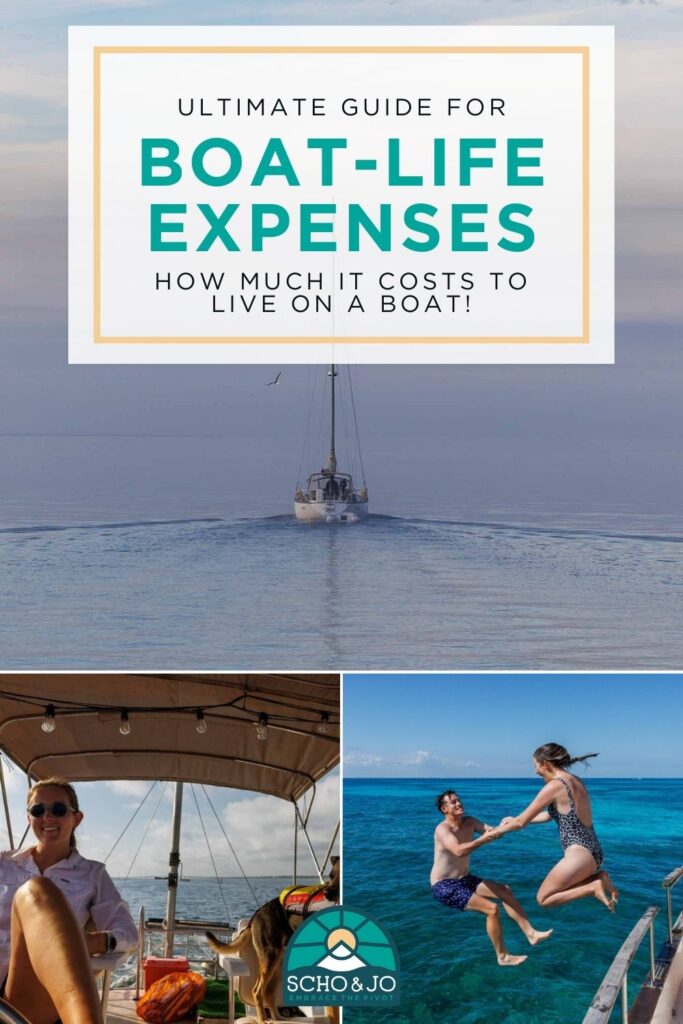

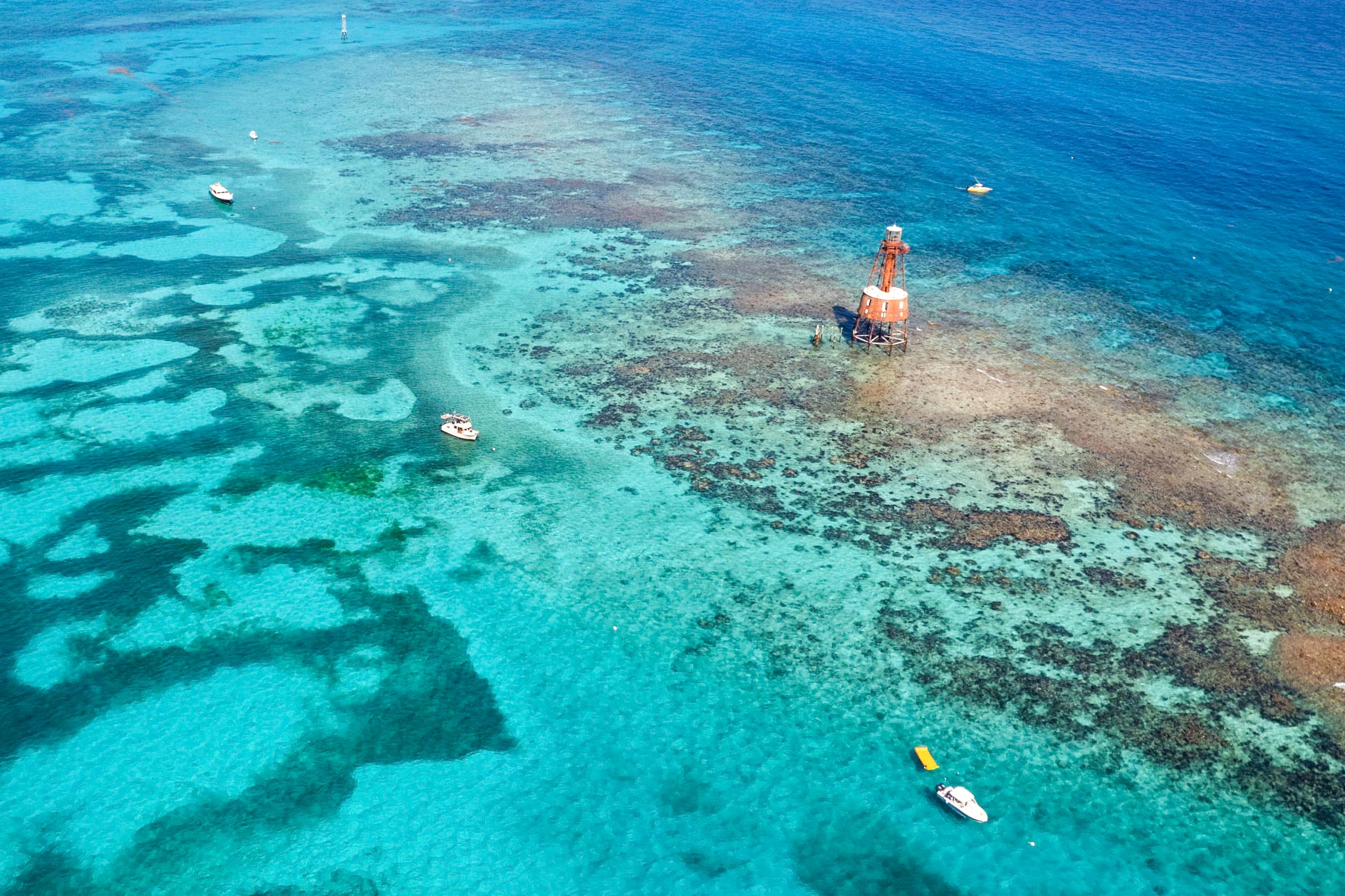
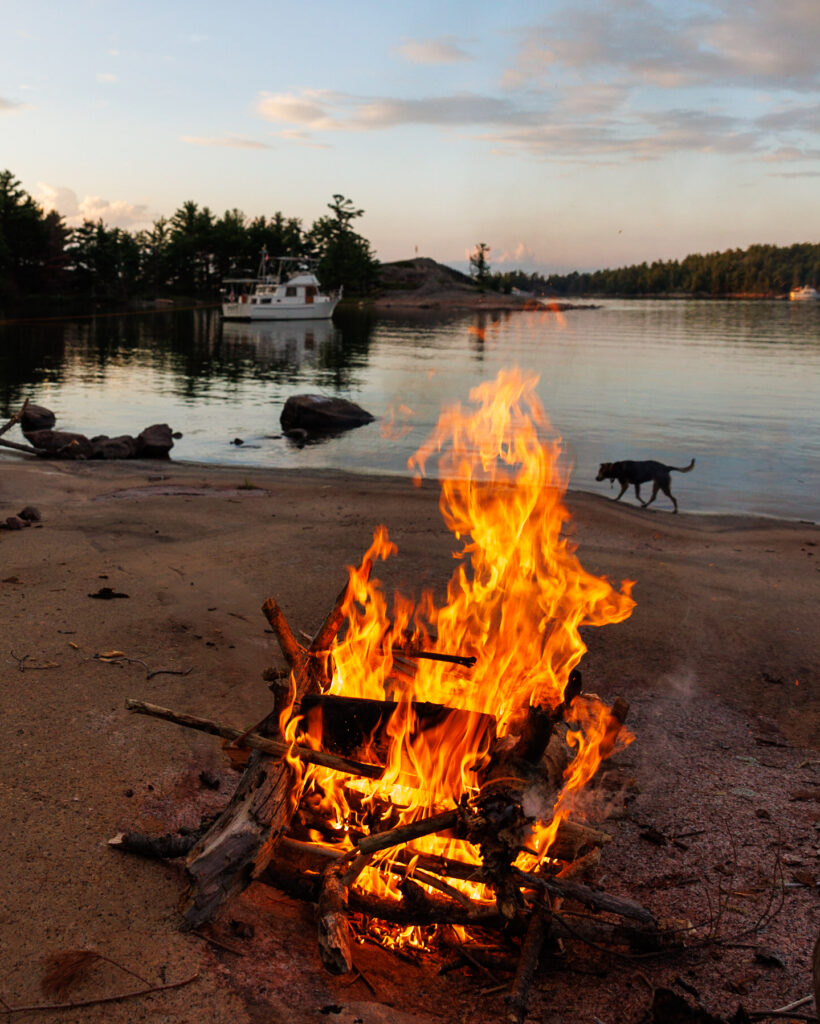
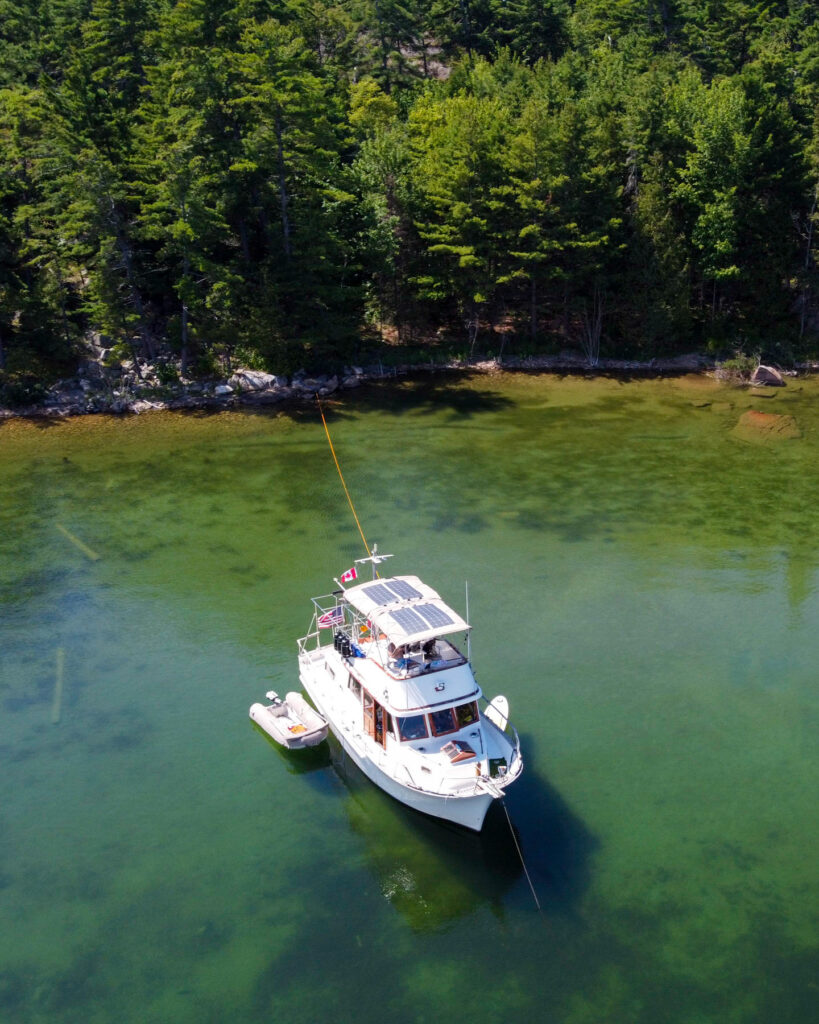
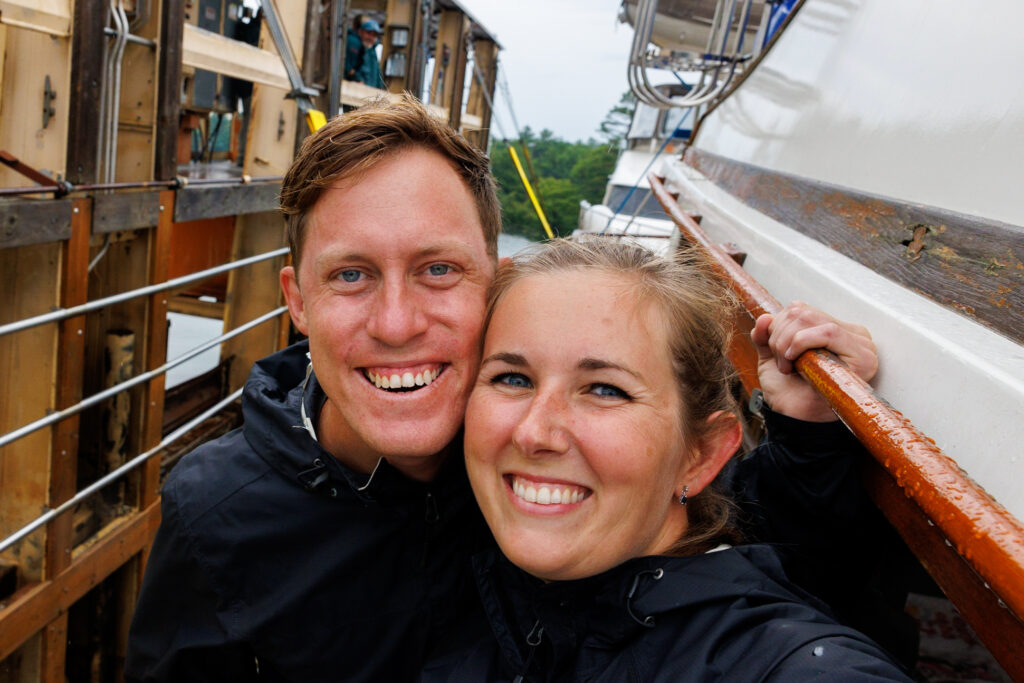

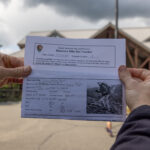


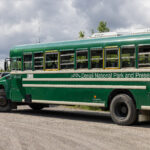

Leave a Reply
You must be logged in to post a comment.